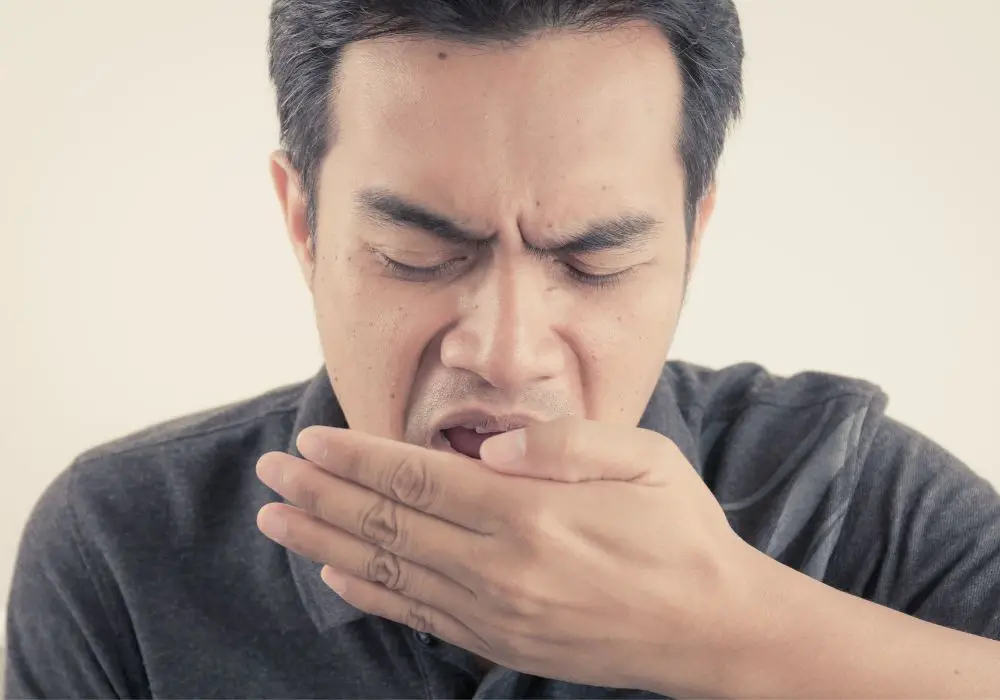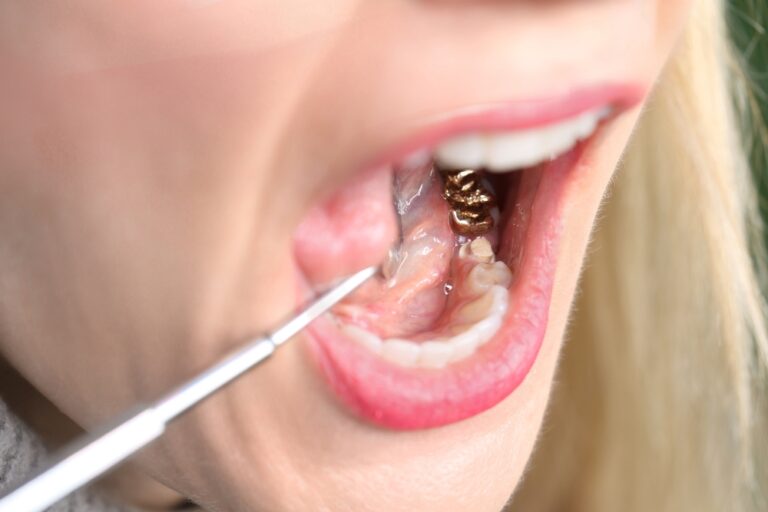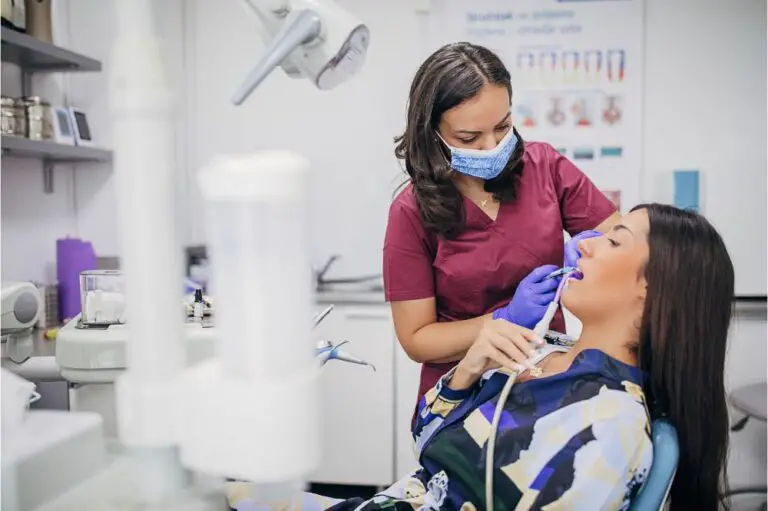Wisdom teeth, also known as third molars, are the last set of teeth to erupt in the very back of the jaws. They typically emerge between the late teens and early 20s. Due to lack of sufficient space and their difficult to reach placement, wisdom teeth commonly become impacted or only partially emerge. These problems predispose wisdom teeth to infections, cavities, and other issues that can lead to strange and unpleasant tastes coming from the back of the mouth.
What causes these weird or bad tastes related to wisdom teeth? Let’s dive into the most common culprits.
Common Causes of Weird Wisdom Tooth Tastes
Several factors related to wisdom teeth can cause foul, unpleasant tastes in the back of the mouth:
1. Partially Erupted or Impacted Wisdom Teeth
Third molars that don’t fully erupt through the gums are termed “impacted.” Partially visible wisdom teeth also essentially become impacted with gum tissue overlaying them.
The inability to fully emerge allows food particles, bacteria, and other debris to readily become trapped around and underneath wisdom teeth. This leads to increased risk for:
- Pericoronitis – infection and inflammation of the gum flap overlying the tooth.
- Tooth decay – the trapped bacteria interact with food remnants to produce acids that erode tooth enamel.
- Gum disease – plaque buildup around the tooth infects the gums and erodes supporting bone.
Each of these common problems associated with impacted or partially erupted wisdom teeth can lead to unpleasant tastes or odors emitting from the area. Patients often describe these as:
- Putrid, rotten
- Metallic, salty
- Sour, acidic
Decaying wisdom teeth may also expose the tooth pulp and inner nerves, requiring extraction to resolve associated bad tastes.
2. Gum Disease
The awkward positioning of wisdom teeth makes them prone to excessive plaque accumulation. Without proper cleaning, the plaque bacteria multiply and inflame the gums, leading to gingivitis or periodontitis (gum disease).
As gum disease progresses, it forms ever-deepening infected pockets around teeth. Foul-smelling bacterial waste products seep out from these periodontal pockets surrounding wisdom teeth, creating bad tastes.
Gum disease can also erode gum tissue and supporting bone. This exposes more of the tooth surface to collect plaque and worsens bad tastes.
3. Tooth Decay
Cavities and tooth decay frequently develop in wisdom teeth, especially when impacted. The decay process allows odor-producing bacteria to thrive. The gases emitted from decaying wisdom teeth may taste:
- Like rotten eggs (hydrogen sulfide)
- Fecal in nature (methyl mercaptan)
- Garlicky or oniony (dimethyl sulfide)
- Generally rotten
As wisdom tooth decay worsens over time and forms holes in the tooth, food debris further collects and rots inside the crevices. This accentuates unpleasant tastes.
4. Pericoronitis

Pericoronitis refers to infection and inflammation of the gum tissue surrounding a partially erupted wisdom tooth. It is characterized by:
- Swollen, irritated gums around the tooth
- Purulent discharge – pus mixed with debris
This purulent material has an extremely foul, rotten taste as it decomposes within the infected gum flap overlaying the wisdom tooth.
Chronic or recurrent pericoronitis is common with partial wisdom tooth eruption. This leads to frequent, sudden onset of bad tastes until the problem tooth is removed.
5. Poor Oral Hygiene
Insufficient oral hygiene allows plaque and food particles to readily build up around wisdom teeth. This provides the perfect breeding ground for bad breath-causing bacteria to multiply.
Due to their location, wisdom teeth require special attention when brushing and flossing. But even diligent hygiene cannot fully prevent related problems like gum disease and tooth decay which contribute to bad tastes.
6. Other Causes
Less commonly, the following factors may also produce bad tastes coming from the back of the mouth:
- Sinus infections – Post-nasal drip can worsen halitosis.
- Tonsillitis – Inflamed tonsils trap debris and exacerbate odors.
- Ill-fitting dentures – Improperly fitted dentures can cause gum irritation and food entrapment near wisdom teeth.
- Medications – Some prescription drugs directly cause dry mouth or metallic tastes.
- Oral cancers – While rare, tumors can lead to bad taste.
Getting Examination and Treatment
If you suddenly notice bad tastes coming from your wisdom teeth, promptly make an appointment to have them evaluated by your dentist. The dentist will perform an oral exam and may order x-rays to identify any decay, infections, or other problems requiring treatment.
You should seek care right away if you experience:
- Sudden bad breath or bad tastes that don’t resolve with brushing
- Pain, swelling, or bleeding around wisdom teeth
- Red, inflamed gums near wisdom teeth
- Difficulty opening jaw or chewing due to wisdom teeth
- Visible cavities or holes in wisdom teeth
Try to keep the area as clean as possible until your dental visit. based on their examination, your dentist will likely recommend extraction if the wisdom teeth are impacted, badly decayed, or failing to respond to more conservative treatments.
Extraction is often the definitive treatment to resolve chronic infections, pain, and bad tastes associated with problematic wisdom teeth. Your dentist may refer you to an oral surgeon for removal, especially if the teeth are significantly impacted. Proper post-extraction care helps ensure optimal healing.
Preventing Bad Wisdom Tooth Tastes

While wisdom teeth are inherently prone to problems, excellent oral hygiene can help reduce your risk of issues like infection and gum disease that lead to bad taste:
- Brush carefully along and around wisdom teeth at least twice daily. Use proper technique to clean all surfaces.
- Floss thoroughly once daily, carefully guiding the floss around and under your wisdom teeth.
- Rinse your mouth well after meals to dislodge food debris. Target back molars.
- Have professional cleanings with your dentist 2-4 times yearly to remove calculus buildup.
- Consider using an antibacterial mouthwash to help control bacteria around wisdom teeth.
But ultimately, removing problematic or diseased wisdom teeth offers the only reliable and permanent solution for associated foul tastes and odors. Talk to your dentist about extraction if the area is hard for you to keep clean.
FAQs About Weird Wisdom Tooth Tastes
How long does the bad taste last after getting wisdom teeth removed?
The bad tastes and odors originating from wisdom teeth should resolve within 1-2 weeks after extraction, once the surgical site has had time to heal.
Can I have a bad taste from wisdom teeth if they appear normal?
Yes, it’s possible to have bad tastes even without visibly apparent problems. Dental x-rays can help identify issues like infections and decay hidden under the gums. An oral exam is needed to make this determination.
Why does food keep getting trapped around my wisdom teeth?
The partially emerged position of wisdom teeth creates natural gaps and deep crevices where food easily gets lodged after eating. Careful flossing can help dislodge some of this debris.
What causes a bad taste from just one wisdom tooth?
A localized bad taste indicates a problem with that single tooth, such as advanced decay, severe gum disease, or chronic pericoronitis. Your dentist can determine which tooth is the culprit.
Can I fix wisdom tooth tastes without extraction?
You may be able to temporarily mask unpleasant wisdom tooth tastes using mouthwashes. But removing the source of the problem via extraction is the only reliable and permanent solution.







